Commercial Air Diffuser Types
Get A Quotation Today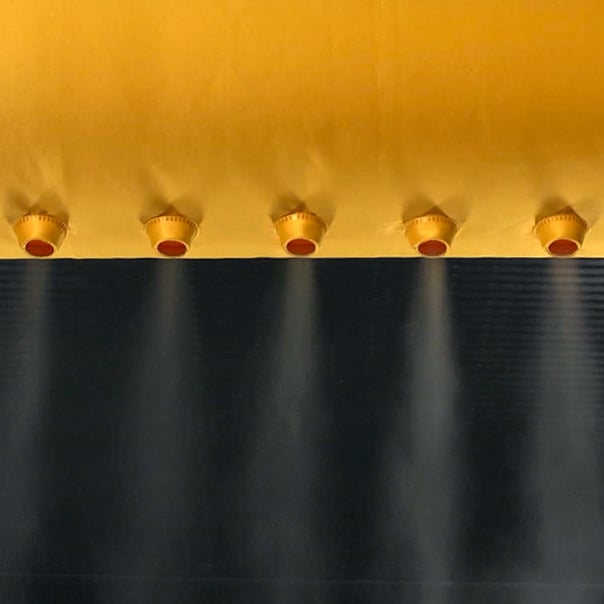
Bespoke air patterns
Fabric air duct diffusers are available in several types, including nozzles and perforations in many different sizes. Unlike rigid air duct diffusers, fabric duct diffusers can be mixed and matched and placed anywhere on the duct surface to create bespoke air patterns for almost any application.
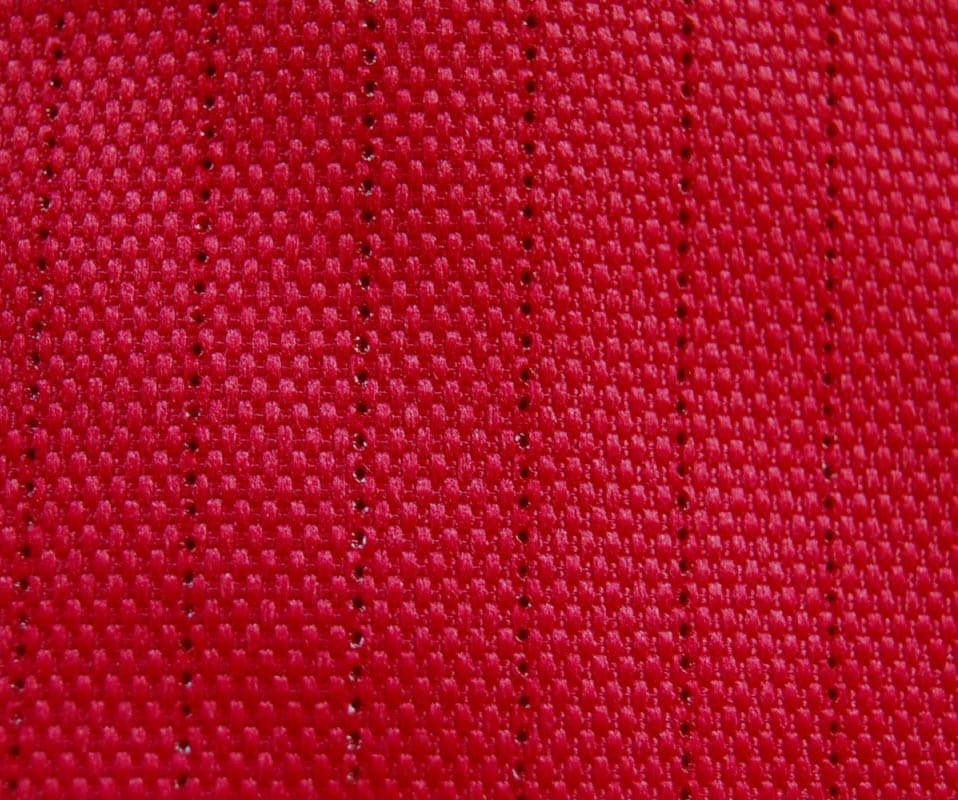
Micro-perforations
Micro-Perforations are 0.2mm laser cut holes. The number of holes is calculated precisely to match the air volume and pressure available. This gives micro-perforations several advantages over diffusing the air solely through the weave of the material, as is sometimes done by other fabric air diffuser suppliers.
- The air delivery is based upon an accurate, calculated and laser cut diffusion fabric area (rather than an approximate permeable value per m²) meaning more accurate air and pressure control and more efficient operation of the AHU plant.
- Micro-perforations don’t allow the same level of dust build up within the duct as we’re not squeezing the air between loose fibres – meaning less blockage and lower operating pressures over time, leading to higher fabric diffuser performance and AHU plant efficiency.
- We can place the micro-perforations anywhere on the duct circumference. This allows us to create a variety of low velocity air patterns and avoids the ‘dumping’ of air immediately below the duct associated with permeable only textile diffusers when cooling with a wide temperature difference.
We use micro-perforations mainly for cooling and for make up air / tempered fresh air.
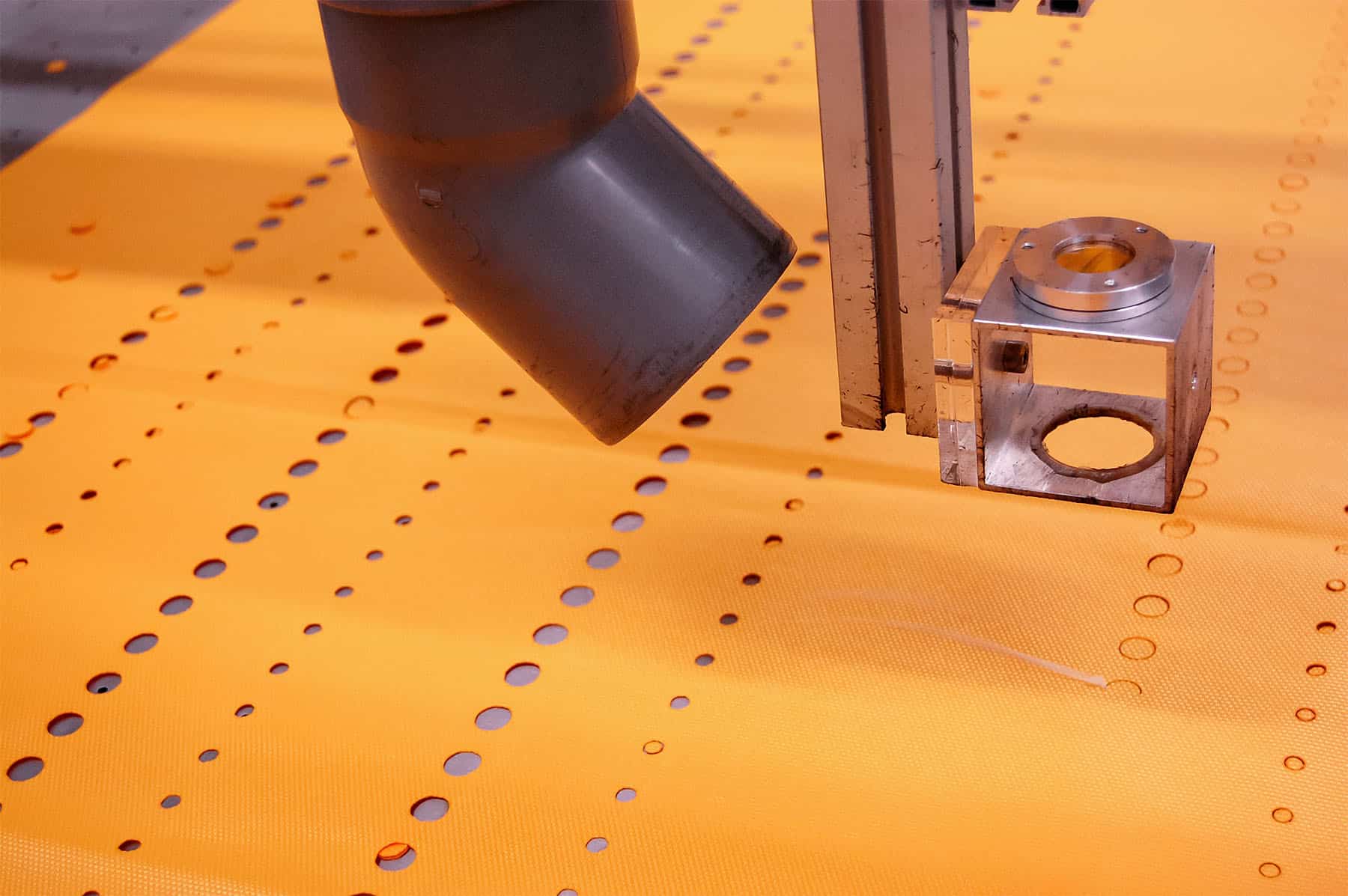
Laser cut perforations
Laser-cut perforations, starting at 4mm diameter, are the ultimate in air diffusion flexibility. With laser-cut perforations we can achieve an unlimited variety of air diffuser positions and air patterns.
We can laser cut any perforation diameter, in any commercial diffuser, in any position on the duct, in any number of rows, with a variable gap between rows and a variable gap between the perforations in the row.
We can create fabric diffuser systems with different throw characteristics; systems that spread air in multiple directions simultaneously and systems that entrain more ambient air for mixing or less if required. The possibilities are limited only by physics – air pressure and density.
Laser cut perforations are used in the majority of our cooling / heating / fresh air applications.
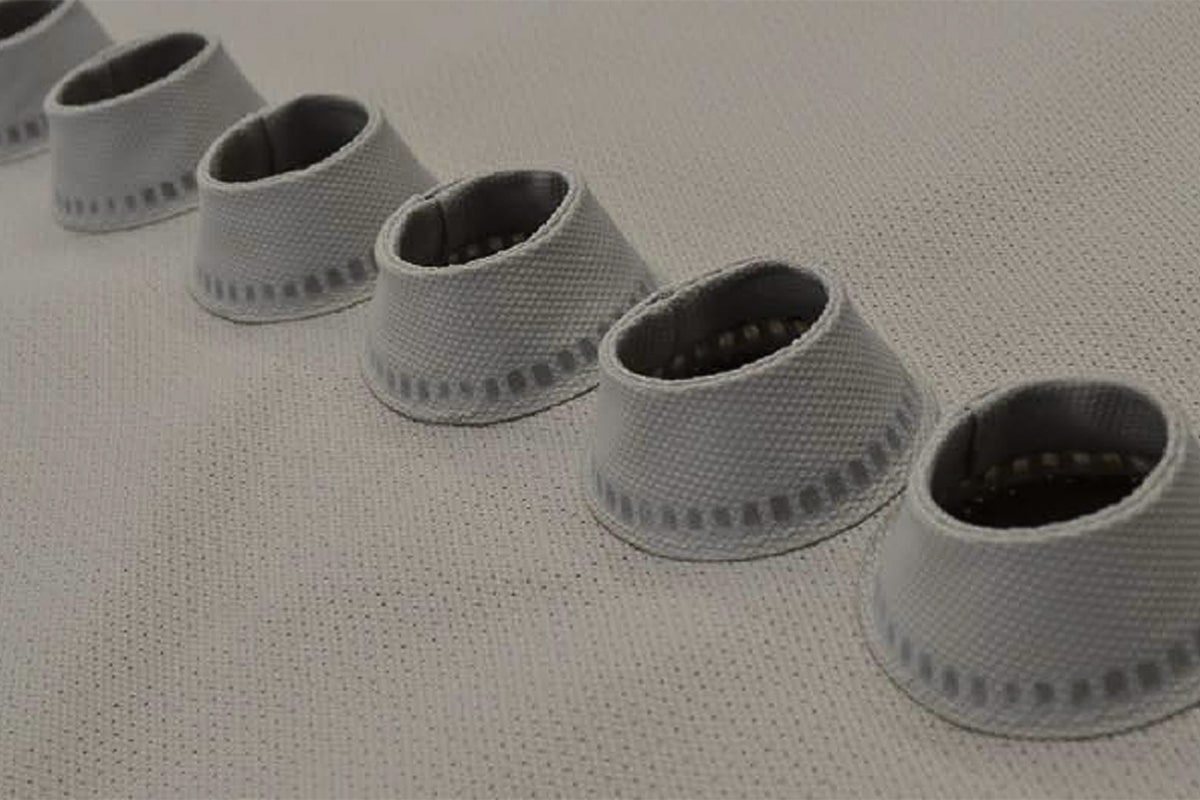
Small fabric nozzles
Small fabric nozzles are designed within the fabric diffuser to throw air in a focused narrow air pattern in a specific direction, typically over a longer distance than laser cut perforations. Prihoda fabric nozzles are available in 20mm, 30mm and 40mm diameters, each giving different throw characteristics.
Nozzles typically entrain less ambient room air than laser-cut perforations – though we can also make low-entrainment patterns with laser-cut perforations where required.
Fabric nozzles are made from exactly the same fabric as the duct, same material and same colour. They are, therefore, flame retardant (unlike the plastic nozzles from our competitors) and sonic welded to the fabric, so there’s no chance of them dropping off either. Fabric nozzles are also lighter than the plastic alternatives and cause less abrasive damage during duct washing.
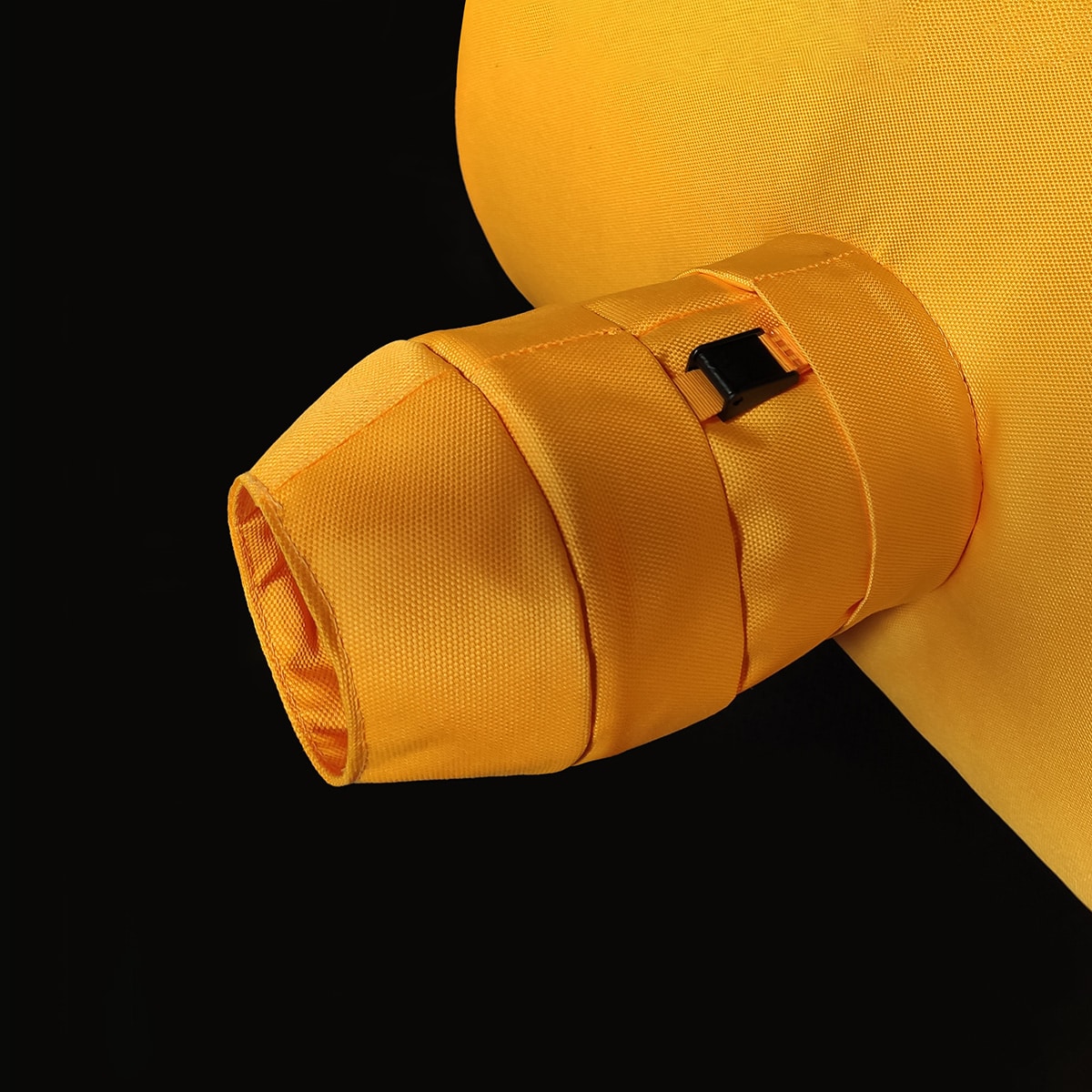
Large fabric nozzles
Large fabric nozzles start at 80mm diameter and are designed for very long throw applications such as high bay warehousing, sports halls and chilled storage, for example.
The size of the nozzle allows us to offer various options for increased flexibility. We can fit dampers, allowing customers to regulate or even close specific large fabric diffuser nozzles.
We also offer an option to make the nozzle directional. By loosening or tightening a number of cords on the internal part of the nozzle, the nozzle position can be changed to significantly alter the pattern or direction of the supply air from the air duct diffuser.
Large fabric nozzles are also made from the same material as the duct. They are flame retardant and match the exact colour of the duct. The nozzles are sewn on to the duct and are significantly lighter than the nearest plastic alternative. This leads to less tension around the nozzle and therefore less distortion than the large plastic alternative. Additionally, this requires less system pressure to achieve an acceptable aesthetic finish to the duct.


